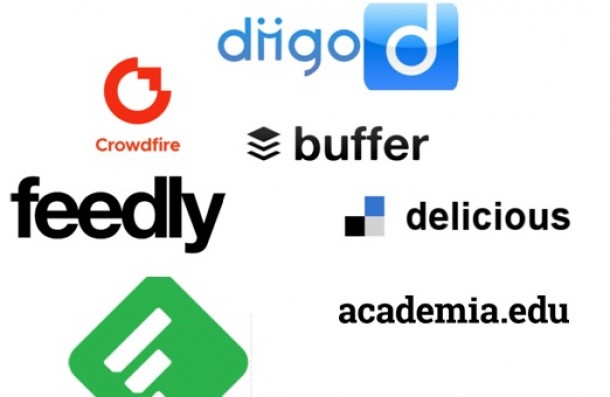Up-to-date materials is an issue that concerns online higher education institutions and academics. The reason being that higher education is in need of identifying theoretically and methodologically robust sources. This is a first step and is key to the teaching-learning process due to the over-information associated with the Internet.
Some open resources allow online higher education institutions and academics to keep materials selected, updated, classified and shared with students at no economic cost. These resources allow access to information based on already established classifications. The most valued resources are those that have no cost; among the most interesting of these are:
del.icio.us
is a free resource that allows us to keep browsing results safe. Del.icio.us
allows you to create your own search engine so that the teacher can create a
collection of links and organize these links. The resource search system
facilitates an adapted process. It was directed by YouTube foundations and in
2015 it was acquired by DomainerSuite.
Diigo have been defined as a as a multi-use tool for the management of personal knowledge. The aim is to facilitate the flow of information. It allows you to collect websites by setting bookmarks, tags, collections of online pages, libraries and groups, among other options. Diigo was founded in 2005 and is currently a company of 12 people.
Crowdfire
allows you to connect with Facebook, Twitter or Instragram in a way that links
social networks with the search on the Internet. The choice of topics, such as
management, allows access to a large number of news items that can be shared
with just one click. The resource is available for mobile devices (iOS and
Android). Crowdfire merged with private capital in 2010 and currently has 57
employees.
Feddly is
one of the most used resources to select, save and classify web pages related
to topics relevant to the user. The selection of topics of interest allows the
user to access various sources, highlighting the most relevant ones. The option
to follow groups within scope is also possible. Feddly is one of the first
readers; It was founded in 2008 and experienced a great growth after the
closing of Google Reader.
Buffer is a
commercial resource but the free alternative is adequate to create a collection
of relevant information. Accessible from a Facebook, Twitter or Linkedin
account, although it requires confirmation of data. The resource is available
for mobile devices (iOS and Android). Buffer was founded in 2010 and currently has
a team of 70 people.
Academia is
the social network most used by teachers of higher education. It allows users to
create an account when sending an academic publication, an article or a
communication, of which the academic is the author. The account of this resource
is linked to the academic interests of each teacher so that it allows knowing
the status of the publications of other authors from the same field of
knowledge. It is one of the most used resources to know the number of citations
of an academic article. Founded with private capital, currently has 21 workers.

